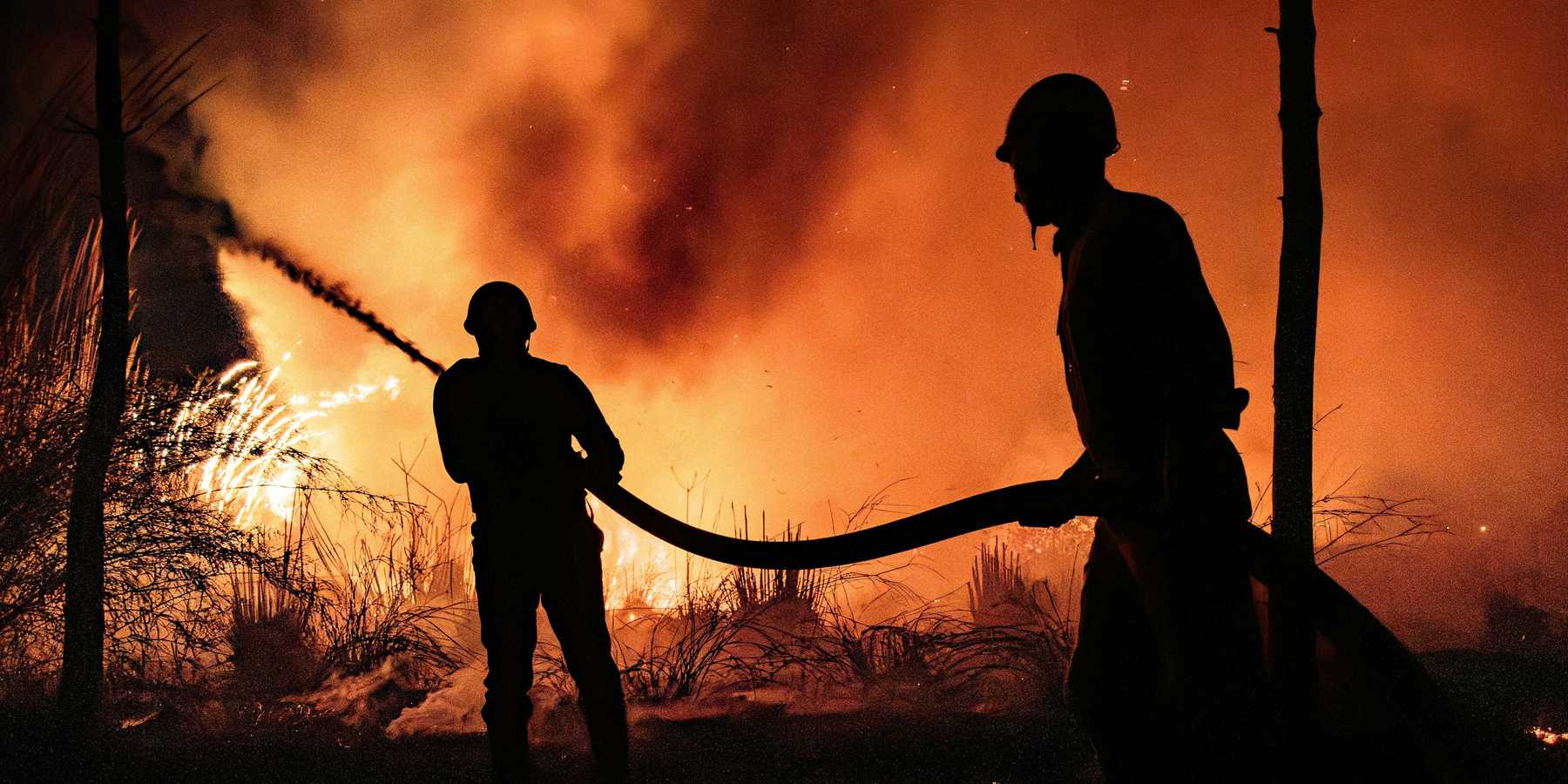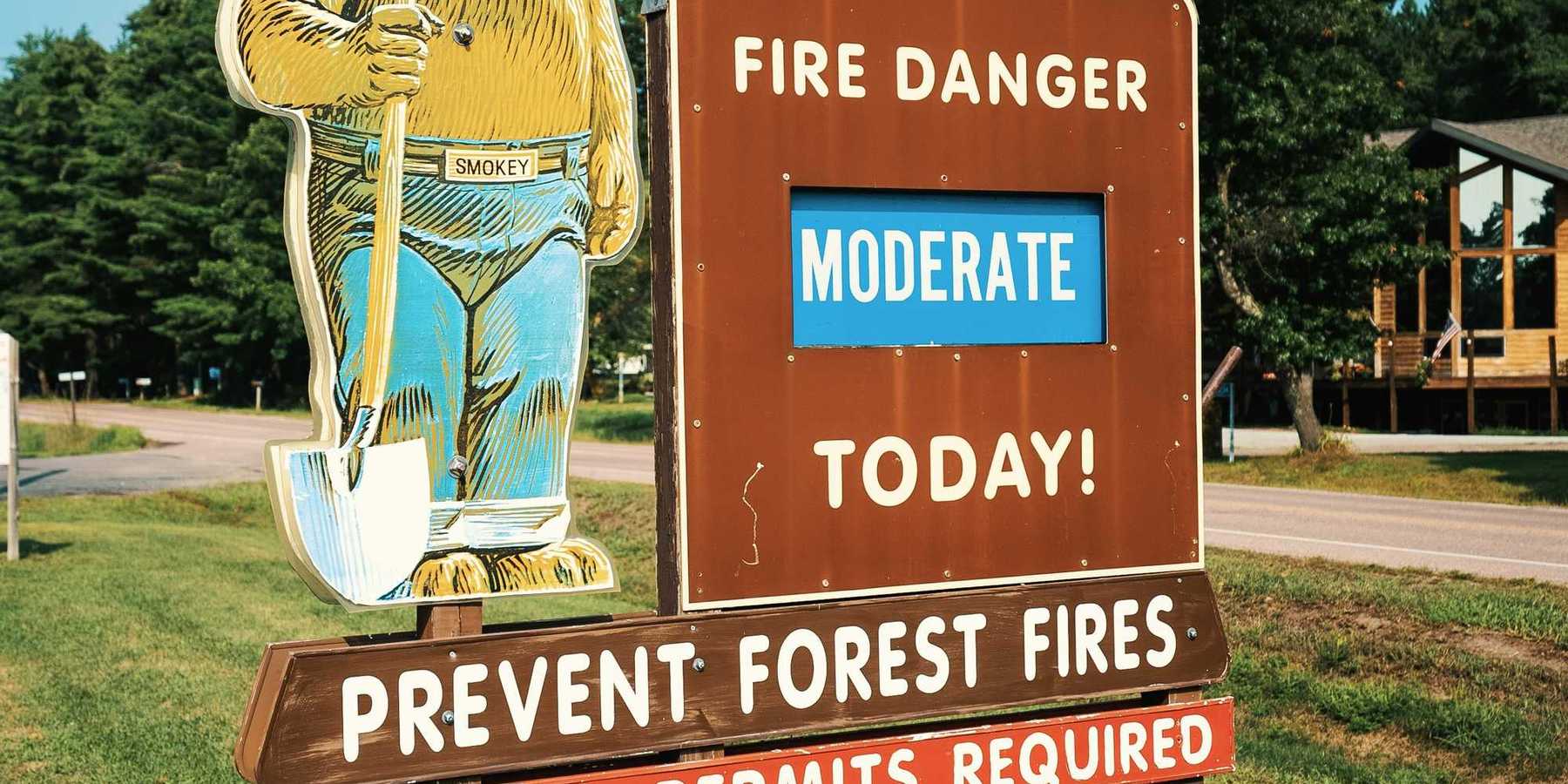Peter Dykstra: Climate change denial and me
Since the 1990’s, I’ve had a front row seat for TV news's abject failure in covering climate change.
In the year 2000, I was overseeing CNN’s science and environment coverage. One day in our daily editorial meeting, one of the top bosses asked me why there seemed to be such scientific doubt about climate change.
I told him there was little doubt among credentialed scientists, but that news organizations tended to cover science controversies by the same standard as the one that decided criminal trials: Any reasonable doubt was entertained.
But science worked more on the standard of civil trials: A preponderance of evidence ruled the day. Reasonable doubt is what got O.J. Simpson criminally acquitted of murder, but a preponderance of evidence found him liable for millions of dollars in wrongful death judgements to the surviving family members of his (alleged) victims.
After a year and a half of wall-to-wall coverage of O.J.’s mid-90s criminal trial, a room full of cable news execs and middle managers needed no more explanation of how reasonable doubt worked.
In 2010, Naomi Oreskes and Erik Conway thoroughly explained how petrochemical and tobacco makers masterfully used this in their book Merchants of Doubt.
In my 18 years at CNN, I never had more success in persuading top execs that climate change was real than I did by explaining the climate-O.J. connection. Really.
Go-to climate denier
Around the same time, Pat Michaels complained that he was blackballed from appearing on CNN due to his denialist views. Michaels was the go-to climate denier in the 1990’s. His science credentials were strong: A Ph.D. in ecological climatology from the University of Wisconsin; Virginia’s semi-official state climatologist; and Laureate of a minuscule slice of the Intergovernmental Panel on Climate Change’s (IPCC’s) Nobel Peace Prize. He was glib and almost always available for a short-notice TV interview.
Michaels’ work screamed of potential conflict, though. Some of his publications were funded by the Western Fuels Association, a coal industry trade group; more were fronted by the Greening Earth Society, an industry-funded outfit that argued for the blessings of atmospheric carbon as a sort of plant food for a hungry Earth.
Blackballed? l checked the CNN videotape library to learn that Michaels had appeared more often than any scientist commenting on climate – denier or not – through the ’90’s decade.
But it took the better part of the next 20 years for most “mainstream” news organizations to divest themselves from including climate deniers in their coverage. Right wing outlets like Fox News still feature climate deniers, and, of course, denial runs rampant in one of our two major political parties, the White House from 2017 to 2020, and the Supreme Court from now till who knows when.
Perfect storms
I took over management of CNN’s weather operations in late 2003, just in time for the outlandishly busy Atlantic Hurricane seasons. In ’04, four major storms – Charley, Frances, Ivan and Jeanne – raked Florida, causing unprecedented damage.
Who could have believed 2005 would be worse? Dennis, Rita, and Wilma were all major storms, each costing billions in damage. The list of hurricane names ran through the alphabet for the first time ever.
And Hurricane Katrina topped them all: More than a thousand lives lost and $125 billion in damage. The images of swamped neighborhoods and ill-prepared rescuers touched America like never before.
The two seasons also re-ignited mostly dormant public concerns about climate change. And in 2006, climate evangelist Al Gore hit his stride. His PowerPoint presentation. “An Inconvenient Truth,” won a documentary Oscar, and the former Vice President shared the 2007 Nobel Peace Prize with 1,500 IPCC scientists, including the aforementioned Pat Michaels.
In late 2008 as the world economy tanked, climate interest had waned. CNN shut down its science and environment coverage, laying off a superb correspondent in Miles O’Brien and several producers, including me.
One party issue
From about 2008 to 2012, climate change became a one-party issue. Republican heavy-hitters including John McCain, Mitt Romney, Newt Gingrich and even Sarah Palin backed off words and deeds on climate.
In 2014, CNN President Jeff Zucker provided a moment of sincerity when asked about the near-absence of climate coverage in TV news, he said, “We haven’t figured out how to engage the audience in that story in a meaningful way.”
Well before his departure in 2021, Zucker delivered.
Former ABC correspondent Bill Weir is a consummate storyteller who has held the title of Chief Climate Correspondent for several years. But Weir’s stories compete for airtime with Trump, Biden, Putin, Kardashian(s), Ukraine, COVID, inflation, mass shootings, Shinto Abe’s murder, and more. Climate rarely wins that competition.
For the rest of this year, the midterms loom not only as the newest top story, but one that could re-capture both the House and Senate for a party that’s reaping the rewards of climate denial. And two years hence, denial could return to the White House.
That might be one way to bring climate reporting to American TV. But at what cost?
Peter Dykstra is our weekend editor and columnist and can be reached at pdykstra@ehn.org or @pdykstra.
His views do not necessarily represent those of Environmental Health News, The Daily Climate, or publisher, Environmental Health Sciences.













